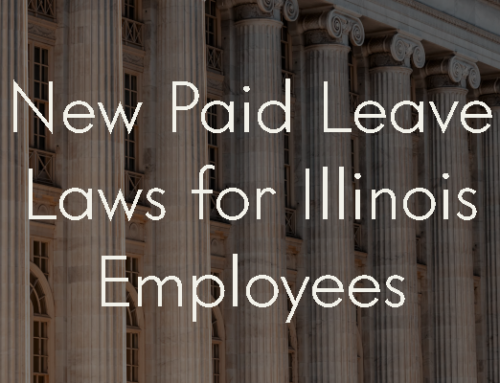As the leaves fall every autumn, a seasonal specter rises to suffuse sepulchral storefronts with spirit and spook: the Halloween pop-up shop. For a few weeks every year, dusty ‘For Lease’ signs relinquish their vigil to bright orange-and-black banners broadcasting their bounty to the well-flannelled masses. Where do these stores come from? Where do they go? How can seasonal businesses possibly be a sustainable? Gather close and listen, my friends, for the mysteries of their origin and operation are secrets only known to a privileged few. And any long-time listeners to Curious City on WBEZ.
Costume stores were among the very first pop-up shops. Halloween merchandise sees huge demand in October, but plastic pumpkins and witch hats fall out of fashion after the holiday. Joseph Marver, a San Francisco dress retailer, opened the first seasonal spooky store in the 1980s, starting in his own shop and subsequently renting space in a nearby mall. The idea was soon picked up by large chains, like Party City, and the trend exploded in the late 1990s.
Halloween pop-ups did particularly well after the recession of 2008, filling the vacuum left by sweeping store closures. The demise of big-box stores like Circuit City and CompUSA left empty stores across the country. Such large spaces are tough to fill in the best of times and, with fewer tenants willing to rent and faced with the prospect of a prolonged vacancy, once-reticent landlords changed their tune. One Chicago realtor explains how this turned in the pop-up’s favor: “The resistance was probably twofold. Maybe too much trouble for too little money. And there was some concern that a Halloween store might degrade the image, marketability at some point in the future…By 2011, many of those landlords we previously contacted were chasing me for locations.”
So how and why do Halloween pop-ups work? What can small businesses learn from the pop-up model?
- Retail storefronts are often empty: Retail buildings are harder to rent than residential, so malls and other shopping centers often have lingering vacancies. In such situations, landlords are more willing to offer a temporary lease. Any tenant is better than none!Lesson: For anyone starting a business or expanding to a new location, pop-ups and temporary leases are a great way to test a potential market and raise awareness of your brand. Talk with an attorney to make sure your lease works for you.
- The goods don’t expire: Witches and werewolves are always in style come Halloween. Take it from Courtland Hickey of the Chicago Costume Company: “The wonderful thing about Halloween costumes and costume merchandise is that it’s not produce, so it does not spoil on the shelves, necessarily. So, if they’re not going to be Superman this year, they might want to be Superman next year.” Through the rest of the year, they cleverly repurpose their Halloween goods and sell to the growing cosplay community.Lesson: Don’t just pack up shop when the seasonal market subsides. Others will need your products and services, even if not they’re not immediately apparent. Margins are tight for small business owners so stay flexible, think outside the box, look for niche markets, and leverage your skills in creative ways. Contact us to check that your business structure facilitates your success year-round.
- They’re easy to plan: Seasonal pop-ups have 11 months to refine their business model and look at what will be popular in the coming year. Are there any big superhero movies slated for release? If so, stock up on capes in addition to the standard selection of ghosts and ghouls.Lesson: Plan ahead! Monitor the market, especially in fields of cultural production. Look for opportunities to capitalize on upcoming pop culture crazes and zeitgeists. For other small business owners, consider tailoring your products and services to recognize holidays or other notable events and dates. It makes clients feel like they’re experiencing something special. Have a unique idea you want to protect? Get it trademarked – we can help.
- They’re easily adaptable: Once you officially form your business, you can register assumed names with the Secretary of State to match the season or the location of your pop up shop. These assumed names, or “DBAs,” allow your business to keep its limited liability protection as you customize your shop throughout the year.Lesson: Even though your shop is a pop-up, make it an official business! First, register your entity with the Secretary of State. This protects your personal assets from business-related troubles. Then file for all of the names that you plan to conduct business under. The DBAs and liability protection will last the lifetime of your company, if you renew them on the proper timeline. You must file your business’s annual report every year and renew your assumed names in every year ending in 0 or 5. Want to protect your business year-round? Contact us!
Costume stores may have originated the pop-up trend, but other industries are adopting and developing the model further. Online retailers use it to test new products and build their brands. After the masks get shelved till next year, the storefront may transform into a temporary teahouse, host a home goods store, or take in a transient art exhibit. And just last December, Chicago passed a new ordinance creating one-of-a-kind licenses for pop-up stores, making them easier to own and run.
Halloween pop-ups strike us as garish, cheesy, and unrefined, but they lend an irreplaceable thrill to the chill fall air. And just as Halloween gives October its unmistakable spook, small businesses and entrepreneurs make their communities unique. Neither would be complete without the other. Many small businesses and entrepreneurs operate seasonally, too, contributing to the vibe of their principal months. What would summer be without food trucks flocking to the park, or mirthsome marriages organized by a professional event planner and captured by an enterprising young wedding photographer? Come Christmastime, independent artists and artisan makers start crafting custom gifts for Etsy shops and brick-and-mortar stores, and parking lots transform into groves of Christmas trees for sale.
No matter the month, your small business makes it special and deserves quality protection. Your legal demons aren’t as scary as they seem. Exorcise yours by contacting us today.





